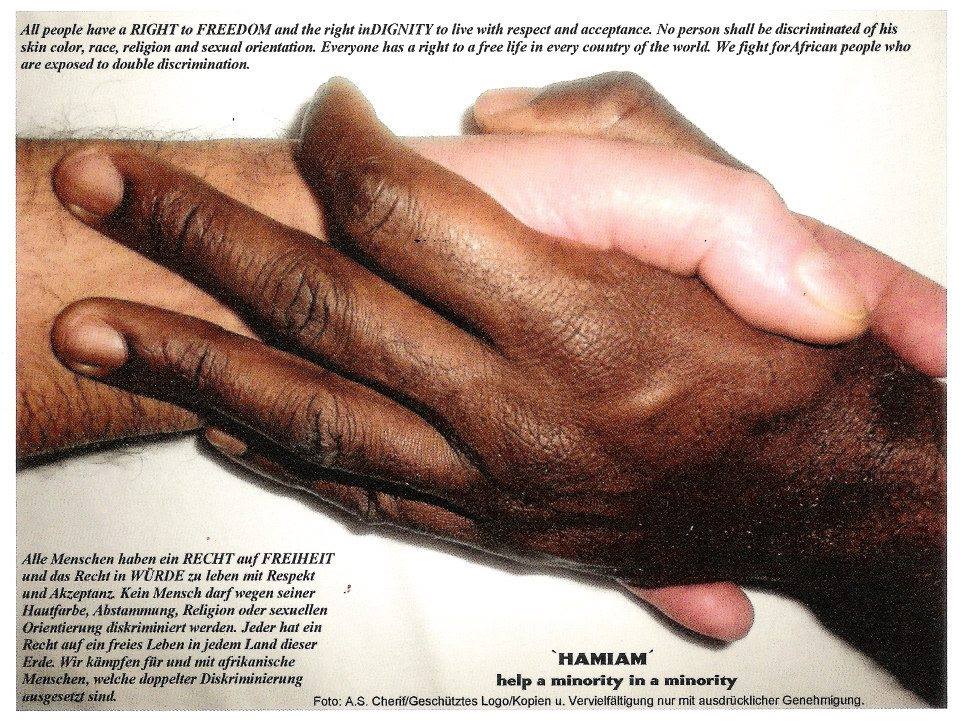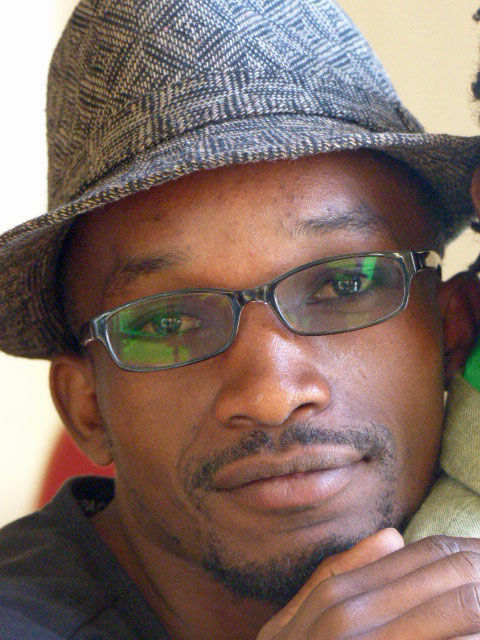Germany’s fears block Ugandans’ trip to safety seminar
Colin Stewart is a 45-year journalism veteran living in Southern…

By Ruby Pratka
Members of a Ugandan LGBT youth group will have to keep waiting to attend a security training seminar in Germany, due to visa difficulties.
The four-day seminar was organized by the German activist group Helping a Minority in a Minority (HAMIAM) and was initially supposed to include 36 young Ugandans from the Kampala-based advocacy group Youth on Rock Foundation. It was scheduled for July 4 to 7 last year in Cologne.
“In the beginning of 2014 we had the idea to create a safety seminar to help young gays and lesbians to live safely in Uganda,” explains HAMIAM spokesperson Alexander Cherif. “It was all about strategies for what people could do if they were confronted with violence or if people they knew were confronted with violence. There were self-defence strategies that could save their lives and save other people’s lives.”
“This is training to manage stress, to manage fear, to handle threats, to try to defuse problems diplomatically and use verbal and nonverbal self-defence techniques,” explains conference organizer Eugene Litvinov. “We had also planned spiritual support…not religious, but psychological. Basically, how do you behave in a crisis situation, and how can you train other people?”

“We could put up and feed people here, we had all the right insurance, we’d given stipends to the trainers already and they had saved the dates; we invited people for a long weekend,” Cherif explains. “The answer came quickly that the time [to process the applications] was too short. We made it Dec. 19-22. … This time we invited 12 people and all of them got refused again.”
The second refusal came despite supportive words from the German Foreign Office.
According to documents from the German embassy in Kampala obtained by Cherif and reviewed by Erasing 76 Crimes, the activists’ visas were refused because consular officials didn’t think the Ugandans would return home from Germany.
“They [the embassy] suggested we hold the seminar in Kampala, but we said that wasn’t reasonable,” said Litvinov. “Then they said the people who got approved could give the training to those who didn’t—only nobody got approved.”
Youth on Rock Foundation director Martin Morgan Kanyike said the German officials’ concerns are understandable but baseless.
“If we wanted to get asylum, we’d seek asylum. I know I can go to any foreign embassy in Nairobi and get asylum, because I’m on the front line of activism; I’ve been arrested and threatened. The police know where we’re sleeping and they have all our phone numbers,” Kanyike said.
“We are not asylum seekers. We would never want to leave our members behind. We have members who have come out because they knew we were there and they could rely on us. For us, it’s not a good idea to run away— what about those you leave behind? We decided to stay in our country to fight for our rights from here. Our mission was just to go [to Germany] and get the information and come back.”
“We wanted to participate and get more knowledge on how to defend ourselves, especially legally in case our members were arrested. We wanted to know how we can advocate on a national and international level. If I’m in my room now and someone comes to arrest me, I need to fight back, I need some training. I can’t just put my hands up and wait for someone to beat me,” he said.
“This kind of training is necessary with the kind of environment we are living in this country,” added another Youth on Rock activist, Stephen, (not his real name). “We need to be psychologically encouraged and empowered, and we need information on how we can deal with this [security situation] to be able to serve our people effectively.”
Kanyike said the passing of Uganda’s notorious Anti-Homosexuality Bill in December 2013 and its enactment in February 2014 made the situation of the country’s gays even more precarious, despite the fact that the law was invalidated six months later on a legal technicality.

“We are worried about the bill…being passed again,” said Kanyike’s colleague, Frank Kamya. “There were a lot of physical and verbal attacks; the local community has no real idea who we are and what we’re doing. They can’t understand [homosexuality]. Rejecting homosexuality is a part of their culture and their religion and they are not exposed to any kind of information.”
“We talk to our members about security, HIV and aids, nutrition and other health issues, and we try to do economic empowerment, helping people earn money by making necklaces and starting small businesses, but we also try to tell ordinary Ugandans ‘We are human beings, like you.’ ”
“Applying for a German visa is a long process and it’s interfering with my work but it’s something I really wanted to do,” said Kamya. “Applying as a group is a bit complicated; maybe if two people apply, they’ll get somewhere?”
Stephen added, “I did not expect Germany, a country that supports us and knows what we go through and the kind of work we do, would obstruct the kind of work we do.
“It feels like the Western world has left us,” he said.
Cherif is contesting the refusals of the visas in the German court system. In September, an initial decision went against him. “The embassy in Kampala is still arguing that the people won’t come back, because they don’t have families and kids in Uganda,” he said. With the assistance of a pro bono lawyer and volunteer advisors, he is currently trying to raise money to continue to appeal the decision.
“We’ll try again in February,” said Cherif, who advocates for gay rights for Ugandans on a voluntary basis. He and his colleagues are formulating a plan for what to do next.
“It was a lot of work and we are really sad about what’s been happening, but we cannot give up.”
The German Embassy in Kampala redirected inquiries on this case to the German Foreign Office. No response was received from the Foreign Office.
Ruby Pratka of Quebec City, Canada, is a journalist, communications specialist and French-English translator who has often written about LGBTI issues.
Related articles
- Germany blocks Ugandans’ trip to safety seminar (76crimes.com)
- A step toward opening HIV care to LGBTI Ugandans (76crimes.com)
- U.S. blames Uganda for raid on gay-friendly AIDS clinic (76crimes.com)
- In a small step forward, Ugandan pride parade is peaceful (76crimes.com)
- Supporters chip in to save sight of battered trans Ugandan (76crimes.com)
- Archive of this blog’s Uganda coverage



Reblogged this on Peterson Ssendi and commented:
German visa for LGBTS
Reblogged this on Ruby Pratka – Year of No Fear and commented:
My latest for 76crimes.com